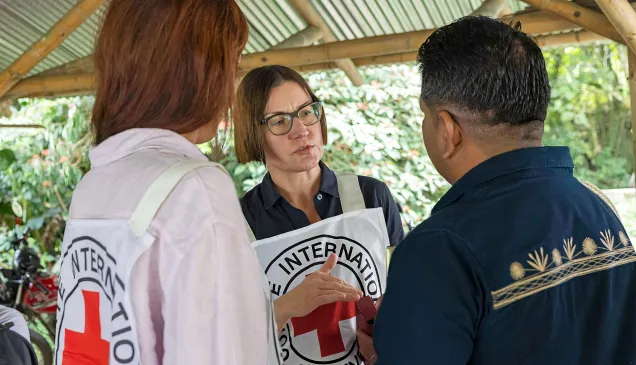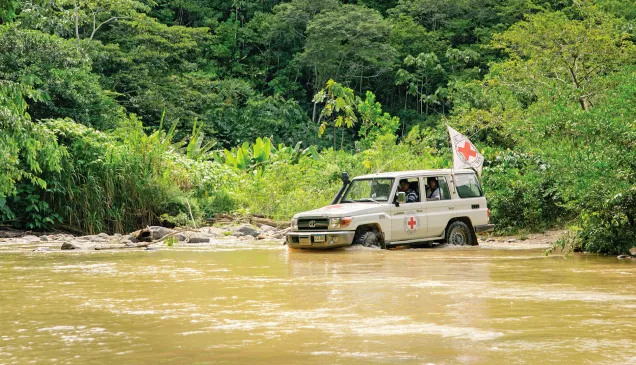Panama: Rain water is safe water
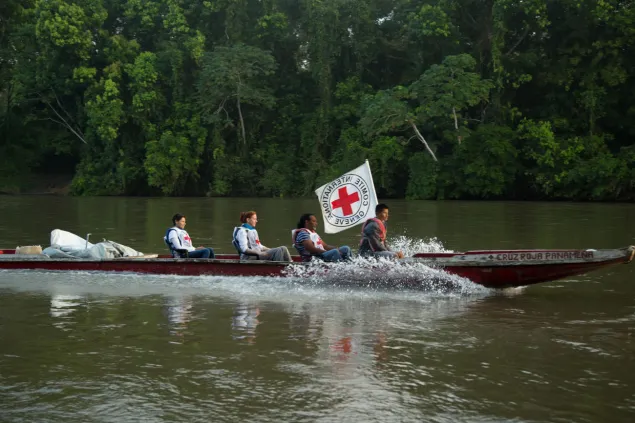
The communities of this region are a five-hour bus journey from Panama City, and about eight hours by boat. Depending on river conditions, the journey can take up to two days.
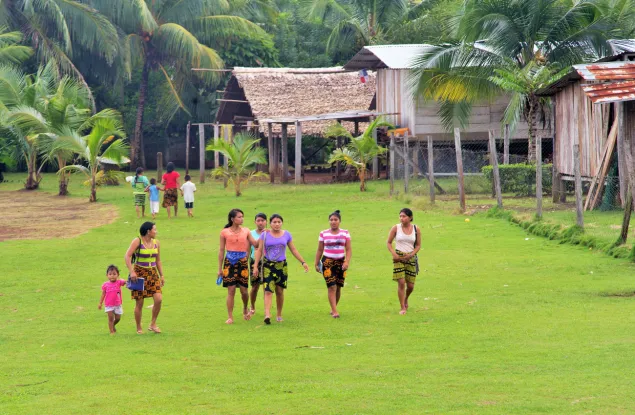
Communities along the Panama/Colombia border lack access to basic services, which affects their quality of life.
One thing that's lacking is safe water, and this has a direct impact on health.
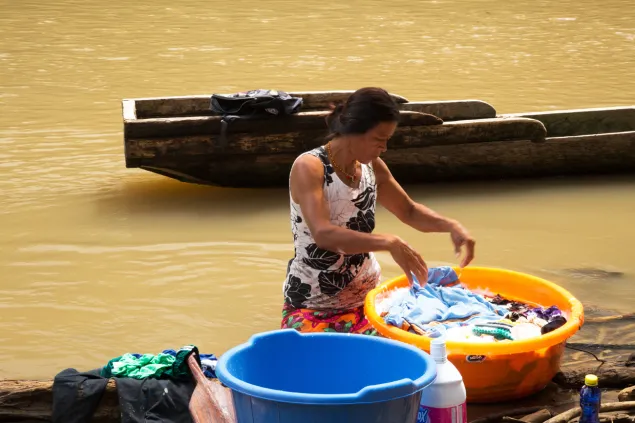
People wash clothes and utensils in the river. Often, they use the same river for drinking and bathing. The result is acute diarroeah and skin infections.
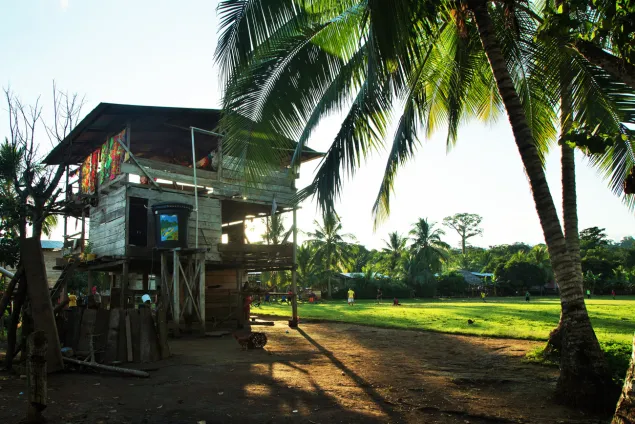
To provide safer water, the ICRC set up rainwater catchment systems in Alto Tuira (Matugantí, Sobiaquirú, Paya, Púcuru, Boca de Paya and Balsal).
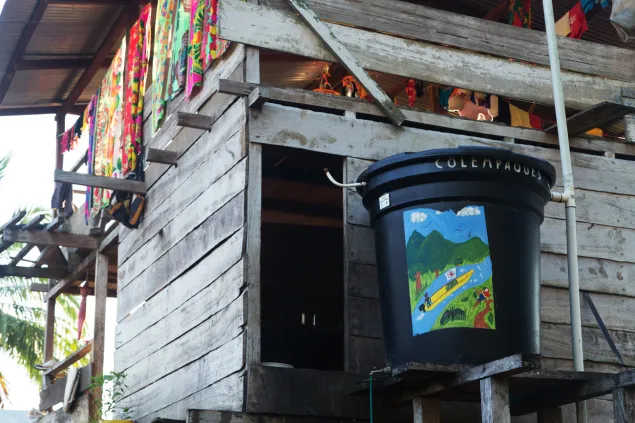
This involved improving the structure of dwellings and installing 1,000-litre tanks to capture rainwater.
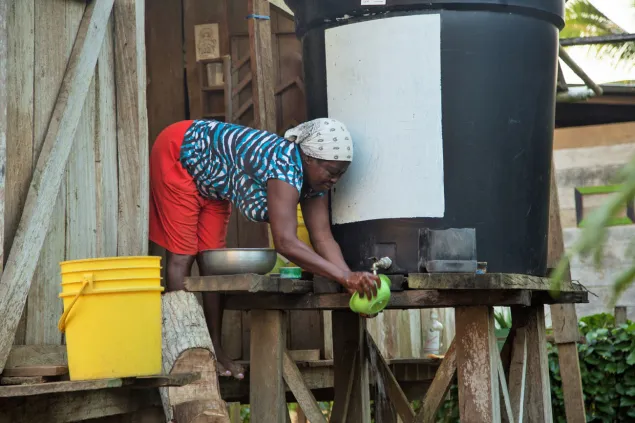
Proper storage and treatment ensure that the rainwater collected in the tanks is safe for drinking and cooking.
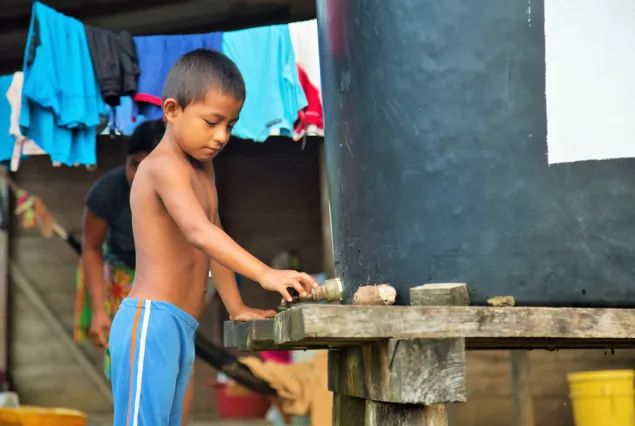
Drinking safer water has helped prvent some of the illnesses most commonly encountered in the area, such as diarrhea and intestinal parasites, especially in children.
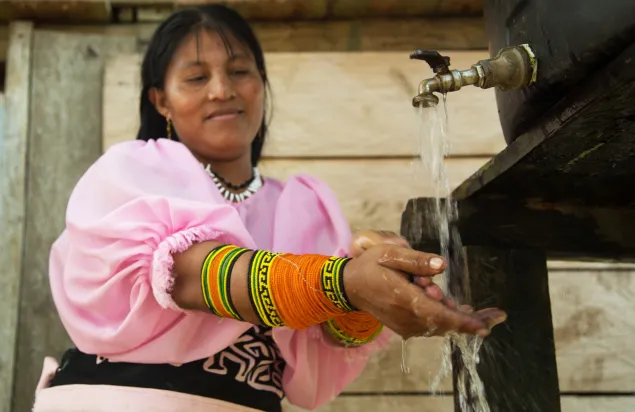
By the end of 2013, some 2,600 people had benefited from the installation of rainwater tanks in the homes, schools and health centres of Alto Tuira and Boca de Cupe.
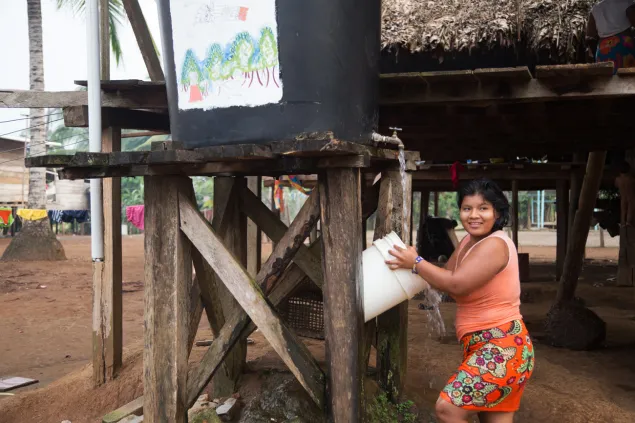
The ICRC trained local people to maintain the tanks and the rest of the system, so they will be contributing to the sustainability of the project.
Communities in Panama's Darién province lack basic water and health facilities, especially in the area bordering Colombia. The difficulty of obtaining safe water forces them to drink river water, with all the health problems that implies. In 2011, the ICRC and the community built a rain water catchment system, improving health in these communities.
Safe water has a direct impact on life, health and hygiene. That's why we're marking World Water Day, 22 March.


